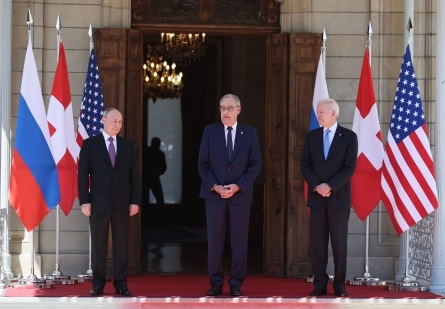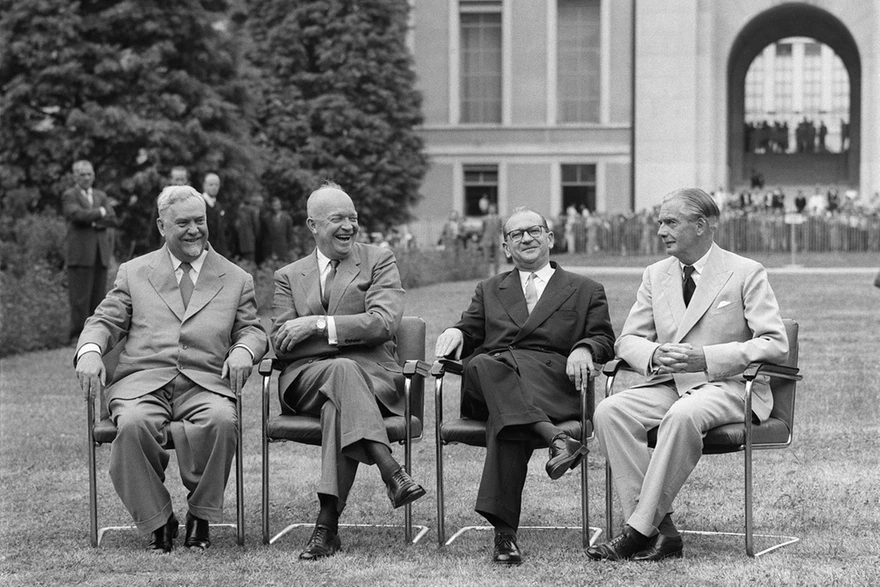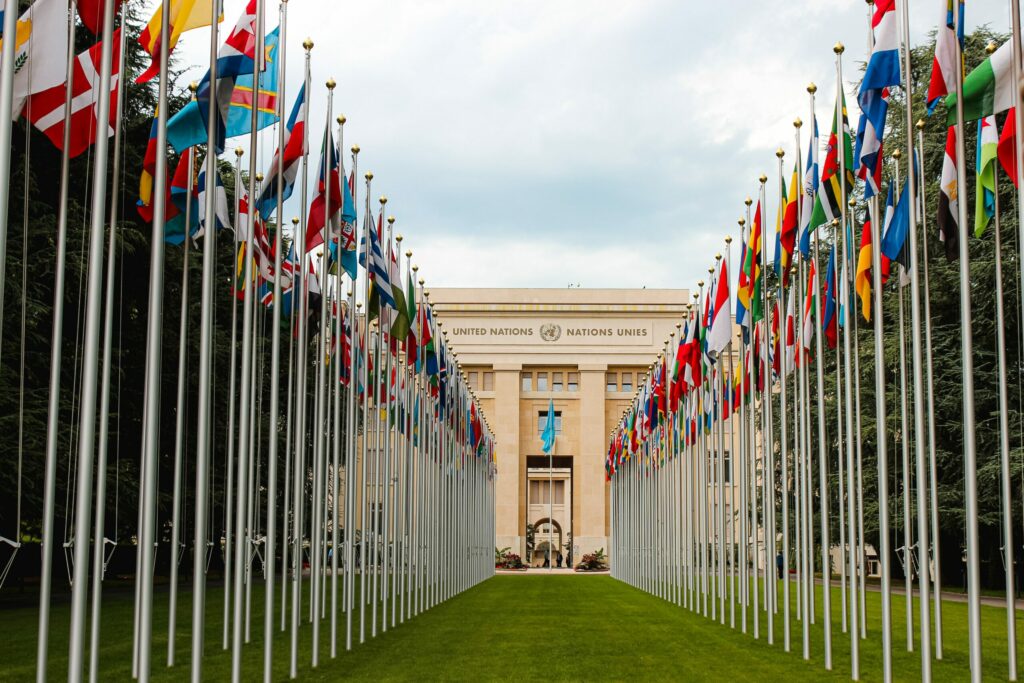Vie, Feb 10th 2023

Russian President Vladmir Putin meeting with US President Joe Biden in Geneva just months before Russia invaded Ukraine.
Switzerland is willing to mediate between Ukraine and Russia, should the two nations be open to such a discussion, the Permanent Representative of Switzerland announced this week at a meeting of the UN Security Council.
“It is important to move forward towards peaceful, just and lasting solutions,” Swiss Representative Pascal Christine Berisville said. “To achieve this, we must rely on international law and diplomatic efforts. And in this regard, if the parties so wish, Switzerland is ready to provide good offices and support de-escalation.”

The Geneva summit of “The Big Four” in 1955 between the US, UK, France and the former USSR.
Switzerland has traditionally played this role, with Geneva serving as the meeting place in 1945 between the US, former USSR, France and Great Britain. Four years later, those nations made history by signing the first Geneva Conventions. And then again in 1955, Geneva was the site of the meeting between “The Big Four”: US President Dwight D. Eisenhower, UK Prime Minister Anthony Eden, USSR Premier Nikolai A. Bulganin, and French Prime Minister Edgar Faure.
In the summer of 2021 – just months before Russia invaded Ukraine – Geneva hosted US President Joe Biden and Russian President Vladmir Putin. But whatever good will that was built between Russia and Switzerland during that meeting has likely crumbled over the last few months as Switzerland mirrored nearly all EU sanctions against Russia. In March of 2022, Russia added Switzerland to its list of “unfriendly nations.”
In August, Russia turned down a Swiss offer to represent Ukrainian interests in Russia and Moscow’s interests in Ukraine, according to Russian Foreign Ministry spokesperson Ivan Nechayev.
“The Swiss were indeed interested in our opinion on the possible representation of Ukraine’s interests in Russia and Russia’s in Ukraine,” Nechayev said over the summer. “We very clearly answered that Switzerland had unfortunately lost its status of a neutral state and could not act either as an intermediary or a representative. Bern has joined illegal Western sanctions against Russia.”

The United Nations’ headquarters in Geneva. It was established in Switzerland on the basis that it is neutral ground.
In Switzerland’s current definition of neutrality there is no mention of sanctioning nations during a time of war. Swiss Representative Berisville argued this week that the sanctions were adopted only after Russia violated international law.
“Switzerland’s neutrality is beyond doubt. But there is no neutrality in case of violation of international law or the UN Charter,” she said. Some Swiss politicians would like to add a ban on sanctions to the country’s definition of neutrality. Meanwhile, other politicians are pushing for Switzerland to take even more steps away from neutrality by allowing nations to re-export Swiss-made weapons to Ukraine – a direct break with the country’s War Materials Act. (Read more: How Switzerland came to be at the center of the Russo-Ukrainian conflict)
In January, Switzerland’s upper house of Parliament voted to revoke a part of its War Materials Act and allow shipments of arms to other countries who intend to send them onto warring nations, only if the conflict in question has been denounced as violating international law by a two-thirds majority of the UN.
The motion now goes to the lower house to approve the recommendation. The Swiss Secretariat for Economic Affairs and seven-member governing body of Switzerland must also sign off on the decision. The decision still hinges on the UN Security Council voting with a two-thirds majority that Russia violated international law. The Security Council counts Russia as a veto-wielding permanent member, so it would seem impossible for the council to make such a vote stick. Then again, the group passed a measure in November calling for Russia to be held accountable for violating international law in Ukraine.
A lot more than just Switzerland’s ability to mediate peace rides on its definition of neutrality. It is the reason why the United Nations, among hundreds of other NGOs, are headquartered in Switzerland. As Switzerland continues to take steps away from its traditional definition of neutrality, the possibility that Russia and Ukraine could end their war through negotiations seems like a less and less possible outcome.
Este artículo puede compartirse y reimprimirse libremente, siempre que se incluya un enlace al artículo original.
